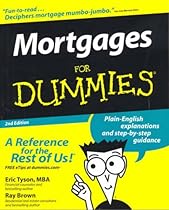by Broderick Perkins
© 2007 DeadlineNews.Com
Deadline Newsroom - More home owners are likely to benefit from a new federal law's mortgage insurance tax deduction extension, than those who benefit from the more ballyhooed mortgage debt forgiveness tax relief provision.
Also see: A Dozen Tax Breaks, On The House
Effective January 1, 2008, the "Mortgage Forgiveness Debt Relief Act of 2007," says, for those eligible, no taxes will be owed on any mortgage debt on a principal residence that is forgiven or written off as part of a short sale, foreclosure, renegotiation, bankruptcy or other such action.
Before the law was passed, such forgiven debt was often, though not always, taxed as income.
The relief act came on the heels of the nation's housing and mortgage crisis after risky subprime and non-traditional home loans blew up in the faces of many home owners and blanketed the economy with foreclosures.
The relief act's debt forgiveness provision protects up to $2 million of indebtedness from taxation if the debt is secured by a principal residence and if that debt stems from the acquisition, construction or substantial improvement of the principal residence. For those who qualify, this special relief is available retroactively for eligible debt discharges from Jan. 1, 2007, through Dec. 31, 2009.
While the forgiveness debt tax relief portion of the act has grabbed headlines, another provision is likely to benefit more home owners.
The relief act also extends federal tax relief for home owners who pay mortgage insurance, typically those with low down payment mortgages. The extension allows eligible home owners a tax deduction on the cost of their government or private mortgage insurance premiums for three more years. The initial one-year provision for the deduction was set to expire Dec. 31, 2007.
A tax deduction, by the way, reduces taxable income, leaving less income to tax.
Now, qualified borrowers can continue to take the deduction for the amount of their mortgage insurance if their insured mortgage originates between 2007 and 2010, instead of just during the year of 2007.
Qualified borrowers are families with an adjusted gross income of $100,000 or less. Families with incomes up to $109,000 are eligible for a partial deduction.
Lenders levy mortgage insurance to protect themselves from risk when a borrower's down payment is less than 20 percent of the purchase price and other loans are not used to make up the difference.
The home owner pays the mortgage insurance premium (averaging $50 to $100 a month, for the national median priced home), but the insurance protects the lender from the risk of financing more than 80 percent of the cost of a home. Studies show borrowers with smaller starter equity stakes in their homes -- less than 20 percent -- have more mortgage payment problems than those who have larger equity stakes -- 20 percent or more.
To protect mortgage insurance consumers from paying the insurance longer than necessary, another federal law, the "Homeowners Protection Act of 1997" grants home owners greater disclosure rights and the right to cancel the insurance once they reach certain equity level milestones.
Economy.com estimates that forgiven debt tax relief could apply to 750,000 home owners, but would likely end up benefiting only 250,000 after weeding out those who aren't eligible.
For 2007, the Mortgage Insurance Companies of America (MICA) estimates 2 million families benefited from the deduction, resulting in an average tax savings between $300 and $350.
Home buyers today are also more likely to opt for home loans with mortgage insurance, because risky mortgages are less and less available -- especially for those who can't come up with 20 percent down. Being cash-poor is particularly prevalent in high-cost areas like California.
It's also significant to note, for meeting the needs of those who can't afford a large enough down payment, mortgage insurance laden loans have a better track record of fewer defaults and, today, more investor interest, than subprime loans.
Suzanne Hutchinson, MICA's executive vice president says, "As risky, exotic loans are no longer considered viable housing finance options, more secure loans with private mortgage insurance remain readily available for qualified borrowers."
More mortgage news that really hits home!
© 2007 DeadlineNews.Com
Broderick Perkins, an award-winning consumer journalist of 30 years, is publisher and executive editor of San Jose, CA-based DeadlineNews.Com, a real estate news and consulting service, and the new Deadline Newsroom, DeadlineNews.Com's new backshop. In both cases, it's where all the news really hits home.
DeadlineNews.Com's Editorial Content Is Intellectual Property • Unauthorized Use Is A Federal Crime
Wednesday, December 26, 2007
Mortgage Insurance Tax Deduction Extended
From The
Deadline Newsroom
on
12/26/2007 09:54:00 PM
![]()
Labels: Broderick Perkins, Deadline Newsroom, DeadlineNews.Com, mortgage insurance, taxes
Subscribe to:
Post Comments (Atom)


No comments:
Post a Comment